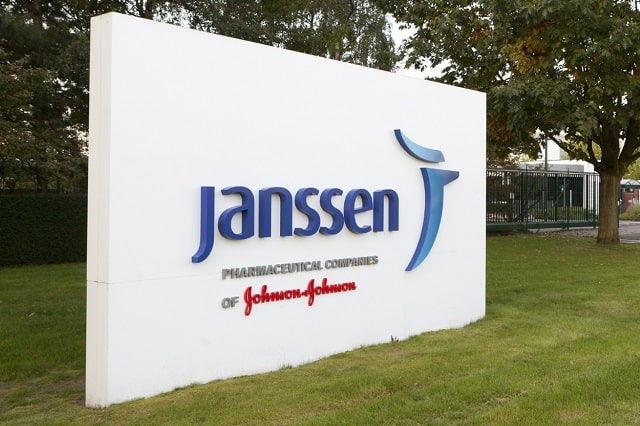
Johnson & Johnson’s Janssen division is set to acquire the rights to an investigational anti-inflammatory treatment, a move that could help it assert a more dominant position in the overly competitive market.
J&J already has high stakes in the anti-inflammatory market, with its blockbuster IL-12/IL-23 inhibitor blockbuster Stelara (ustekinumab) and follow-up Tremfya (guselkumab).
It has now agreed to purchase the anti-IL-1a monoclonal antibody (mAb) bermekimab from XBiotech for a hefty $750m. The investigational mAb is currently in phase 2 development as a treatment for atopic dermatitis and hidradenitis suppurativa.
According to J&J, bermekimab is the only antibody targeting the IL-1a pathway currently in clinical development. The pharma giant, under the terms of the agreement, will now take on responsibility for the clinical programmes.
The antibody was originally being developed by XBiotech as a cancer treatment, but it was unable to demonstrate efficacy in a phase 3 colon cancer study, hence the sharp move to the anti-inflammatory indications.
As per the terms of the deal, XBiotech could receive additional payments on top of the $750m sum if J&J decides to pursue bermekimab in indications other than dermatology. There’s little hint as to what, if any, those additional indications might be.
“Janssen is a world leader in immunology, and we are particularly proud of our long legacy of helping patients with dermatological disease, including psoriasis,” said David M. Lee, immunology therapeutic area head, Janssen Research & Development.
“The acquisition of bermekimab allows us to build on our expertise in immuno-dermatology, while expanding to atopic dermatitis and hidradenitis suppurativa, immune-mediated disease areas that have incredible unmet need,” he added.
J&J is already a leader in the immunology market, and recently filed its next-generation IL-23 inhibitor Tremfya in psoriatic arthritis (PsA) with the European Medicines Agency.
The therapy is a follow-up to its older blockbuster Stelara, which is facing competition across many of its approved uses from newer biologic therapies – including Novartis’ IL-17 inhibtor Consentyx (secukinumab) and AbbVie’s Skyrizi (risankizumab).
Stelara is also facing the upcoming threat of biosimilar competition in the US from 2023, so it is important that J&J builds Tremfya’s approved indications to counteract this anticipated loss.
If it can win approval, Tremfya will become the first selective IL-23 inhibitor for people with active PsA in Europe. This could help assert the drug’s lead over its main rival in the class – Skyrizi – which scored approval in Europe for psoriasis earlier this year.
However, with the market becoming overly crowded across a host of indications, this could prove increasingly difficult.
As well as facing competition from Cosentyx and Skyrizi, Tremfya also has to contend with Eli Lilly’s IL-17 inhibitor Taltz (ixekizumab) and Pfizer’s oral JAK inhibitor Xeljanz (tofacitinib), which are all aiming for the same indications.




